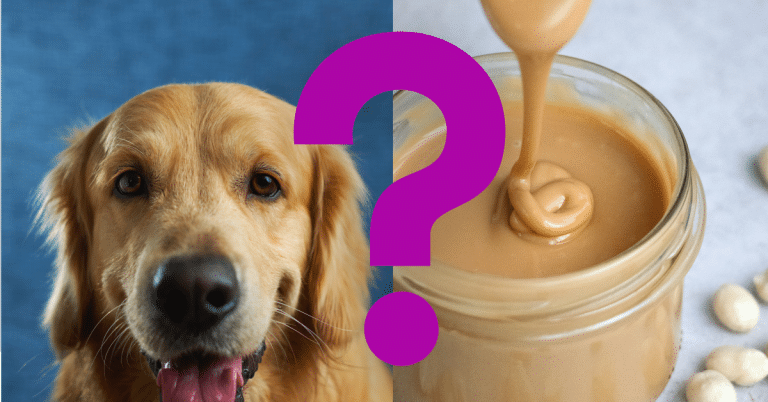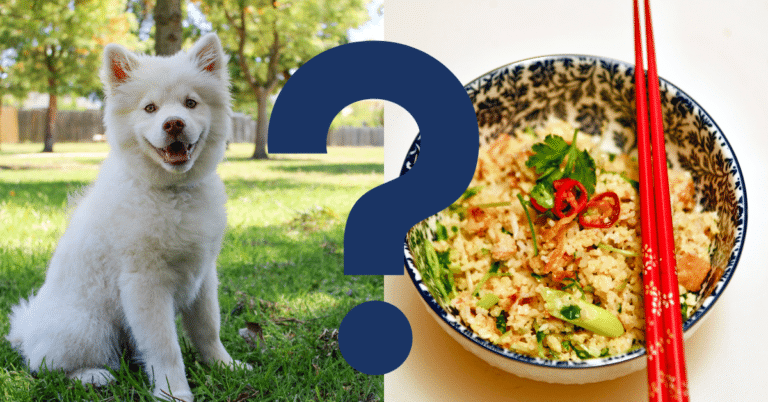Can Dogs Eat Candy Canes? A Vet’s Opinion

Candy canes contains sugar and artificial sweeteners, but can dogs eat candy canes
Dogs shouldn’t consume confectionery of any kind, even candy canes. Usually, chemicals in candy canes are toxic to dogs. The high sugar content is the major cause for worry because it can cause obesity, dental issues, and gastrointestinal distress in dogs. Candy canes could also include artificial sweeteners like xylitol, which is extremely poisonous to dogs and can result in a dangerous decrease in blood sugar.
Let’s dive in:
Benefits Of Candy Cane For Dogs
Candy canes for dogs don’t specifically have any advantages. Candy canes and other sweet snacks are very unhealthy for dogs and should be avoided. Dogs should not consume sugary foods as part of their diet, and doing so can result in several health problems.
It’s important to provide your dog with a balanced and adequate diet that fits their nutritional demands rather than candy canes or other sugary goodies. Avoid sharing human foods, especially those that are heavy in sugar or include potentially hazardous components. Instead, stick to dog-friendly treats and snacks that are designed expressly for canine consumption. If you want to reward your dog, think about giving them little bits of foods that are suitable for dogs, such as fruits or vegetables, or specifically made dog treats that are free of dangerous ingredients like sugar. As usual, if you have any worries regarding the nutrition or health of your dog, contact a veterinarian.

How To Safely Give Candy Cane To Dogs
As previously said, it’s typically not advised to offer dogs candy canes or any other sweet treats. The following risk-free options are available if you still want to give your dog a holiday treat:
- Dog-Safe Treats: Choose dog treats that have been particularly created to be nutritious and safe for dogs to eat. Look for sweets that only contain natural components and none of the artificial or added sweeteners.
- Fruits that are healthy and pleasurable for dogs when consumed in Moderation include these. Offer dog-safe fruit pieces like apple slices, blueberries, strawberries, or watermelon in tiny portions. Keep in mind to remove any potentially dangerous seeds, pits, or skins.
- Dog Biscuits: Select premium dog cookies or biscuits that are prepared with ingredients that are safe and friendly to dogs. To be sure they don’t contain any dangerous substances, always read the label.
- Dog-Friendly Recipes may be used to make homemade dog treats if you love baking. Online, you may find a wide variety of straightforward recipes packed with healthy ingredients like peanut butter, pumpkin, and whole wheat flour.
- Supervision: Whenever you give your dog a treat, even a dog-friendly substitute for candy canes, you should do it while keeping an eye on them. By doing this, you can make sure your dog doesn’t devour the reward too rapidly or have any negative responses.
Remember that moderation is key when giving treats to dogs, as overindulgence can lead to weight gain and other health issues. Additionally, if your dog has any dietary restrictions or health concerns, it’s always best to consult with your veterinarian before introducing new treats or foods into their diet. Your vet can provide personalized advice and recommend suitable treats based on your dog’s specific needs and health status.
Will Candy Cane Make A Dog Sick?
In fact, candy canes are typically unsafe for dogs to eat and can make them sick. Candy canes often include high sugar content as well as artificial flavours and flavours that should not be given to dogs. The following are possible causes of a dog’s sickness from candy canes:
- Diarrhoea, vomiting, and gastrointestinal pain can all result from a dog’s stomach being upset by the high sugar content of candy canes.
- Regular eating of sweet foods like candy canes Can Make Dogs Gain Weight and become obese, which can worsen other health conditions including joint difficulties and diabetes.
- Dental Issues: Just like sugary snacks can cause dental problems in people, sugary treats can cause tooth rot in dogs.
- Potential Toxicant: Some candy canes could contain xylitol, an artificial sweetener that can be extremely harmful to dogs and cause serious health issues like hypoglycemia (low blood sugar) and liver failure.
- Candy canes can be a Choking Danger because of their often-sharp edges, which can also cause injury if ingested whole.
Even while a tiny amount of sugar cane may not be harmful to your dog, you should keep an eye out for any symptoms of pain or disease. However, it is not advised to purposefully give dogs candy canes.
It’s recommended to stick to dog-safe treats and snacks that are especially designed for canine ingestion rather than candy canes or other sugary delights. If you think your dog may have consumed something toxic or if you have any worries about their nutrition or general health, you should always visit your veterinarian. Based on your circumstances, your veterinarian can offer the best recommendations.

A Vet’s summary
Veterinarians advise against giving dogs any sugary treats, including candy canes. Candy canes are not a natural component of a dog’s diet and can be harmful to their health in several ways. The following worries about offering candy canes to dogs are likely to be echoed by a veterinarian:
- High Sugar Content: Candy canes contain a lot of sugar, which is bad for dogs. Obesity, tooth troubles, and digestive problems can all result from excessive sugar consumption.
- Artificial Sweeteners: Some candy canes may include artificial sweeteners like xylitol, which can trigger fast insulin release and cause severe hypoglycemia (low blood sugar) in dogs even in tiny doses.
- Gastrointestinal Upset: Candy canes’ artificial colours and flavours, among other substances, can irritate a dog’s digestive system and result in vomiting, diarrhoea, or other digestive issues.
- Candy canes can be a Choking Hazard since they are hard, especially for little dogs or dogs who prefer to consume things rapidly.
- Candy canes have Little Nutritional Value for dogs; hence they are not recommended. They lack the necessary nutrients that dogs require in their diet.
Veterinarians advise giving dogs safe, healthful treats created especially for canine ingestion rather than candy canes. Commercially marketed dog treats are widely available and frequently manufactured with healthy components and no hazardous additives. In addition, serving dog-safe fruits and vegetables in moderation might be a healthier option.
You can add probiotics to your pet’s diet. Probiotics for dogs are dietary supplements that include healthy living bacteria and yeasts with the goal of enhancing the gut microbiome’s equilibrium. A complex community of microbes living in the gastrointestinal tract known as the gut microbiome is essential for digestion, immune system function, and general health.
Always see your veterinarian if you have any queries or worries regarding the nutrition or health of your dog. Based on the requirements and medical background of your dog, they may offer tailored guidance.
Videos To Watch
If you are wondering whether dogs can eat candy cane, watch this
If you are wondering whether candy cane is harmful for dogs, watch this:






